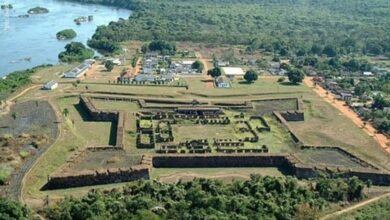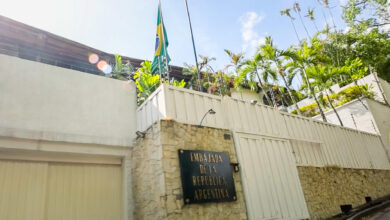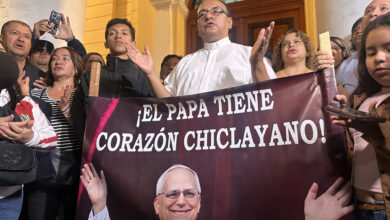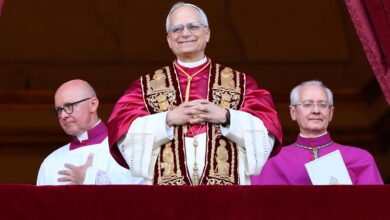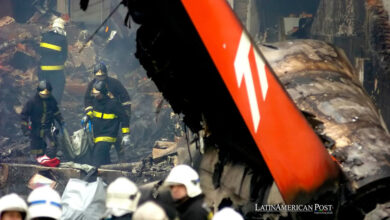MUICA: a contact with African cinema
Listen this article
The traveling African Film Festival launches its third version and will reach the screens of cities such as Cali, Bogotá, Cartagena, and Buenaventura during May

With cowboys and samurai, puppet dictators, neighborhood superheroes, passing through atmospheres that go from the forests of Liberia to the heart of the Sahara, MUICA returns to continue with the goal that it has pursued since 2015: to generate an intercultural dialogue in where cultural, social and historical related characteristics are shared with Africa.
Leer en español: MUICA: no te pierdas el festival de cine africano
At the point of film and photography, this version will feature the participation of Sunny Dolat, one of the founders of The Nest Collective, a multidisciplinary team from Kenya dedicated to film, fashion, visual arts and music, and the photographic exhibition Angola cinemas: A fiction of freedom, a collection of old movie theaters built in Angola during the colonial era by Portuguese architects that are now in disuse after a civil war of 26 years.
MUICA not only aims to make itself known as a film show but also seeks to "open that window to those other artistic expressions that are of great quality and that are related to our historical context, because they also dialogue with our artistic products, such as our cinema and our music, " says Salym Fayad, MUICA cultural manager and documentary photographer based in Johannesburg.
Based on the above, it is not accidental to know that the sample, from May 7 to 10, will be present in Buena Ventura, because according to Fayad MUICA, although in principle it is not designed to reach an Afro population but to a general public, previous versions that have taken place in Providencia, San Bacilio de Palenque, and Cali, "have shown that the reception of Afro communities is great and satisfactory. In such a way that by appealing to the public, this year debt was created with Buenaventura ".
The selection
The festival will have a program divided into three sections: Made in Africa, Diaspora, and Other looks. On the one hand, Made in Africa gives a privilege to African voices to tell their stories from the movies. To this, films like Twaaga by Cedric Ido and The Burial of Kojo by the musician Sam 'Blitz' Bazawule, add up.
Read also: Childhood and the fable in "El tamaño de las cosas."
The first, according to the IMDb portal, narrating the story of Manu, an eight-year-old boy who spends his time reading comics and chasing his older brother Albert, in the middle of a political context in which Thomas Sankara heads the presidential power after a coup d'état in Burkina Faso.
On the other hand, the burial of Kojo according to the District Cinematheque portal, "tells the story of Esi's childhood, and the insurgent relationship between his uncle and his father, Kojo, disappeared on an illegal mining expedition in Kwabena."
The Diaspora section also recognizes Afro-descendants in the world, but from another perspective. The best example of this is BLAXPLOITALIAN , 100 years of negritude in Italian cinema, by Fred Kudjo Kuwornu who, according to the portal Otro Sur, "reflects on black representation in Western audiovisual productions, pays homage to the pioneers, who followed them and to those who continue today, through personal and professional battles, challenging the limits of stereotypes in the film industry. "
The documentary that is about a director of ancestors from Ghana and Italy concentrates that diaspora condition and invites a reflection on the representation of Afro people in the mass media in the West.
Finally, the section Other looks gather several films told by non-Africans but co-produced with African countries and that according to Fayad "tell stories that we consider to approach that is approached without condescension and stereotypes and are made with a more constructive objective." In this regard, films such as Agua Sagrada by Oliver Jourdain and Wallay by Berni Goldblatsuiza will be presented.
It may interest you: Netflix's Our Planet: are we already immune to environmental documentaries?
According to the portal Other South, Agua Sagrada tells the story of Vestine, "a successful radio host, recognized by a special program that explores sexuality in Rwandan society with a great sense of humor" and Wallay, telling the story of "Ady, a Franco-Burkinabe teenager who, because of his undisciplined behavior, is sent by his father from his home in France to his family in rural Burkina Faso. "
With this selection, MUICA hopes to infect the Colombian public with good quality films, films that aim to break with the stereotypes that exist around Africa as a single, uniform and non-diverse geographical place. "Then, on the one hand, it is to show that it is being experienced, that gender squares are being broken, and on the other hand, to go a step further and establish collaborations, in which a knowledge of African arts and realities is promoted through of the cinema, trying to make a more direct approach, a contact with the directors, so that new platforms of dialogue for the creation are opened, affirms Salym.
To learn more about the program, you can access through the following link.
LatinAmerican Post | María Alejandra Gómez
Translated from "MUICA: no te pierdas el festival de cine africano"

